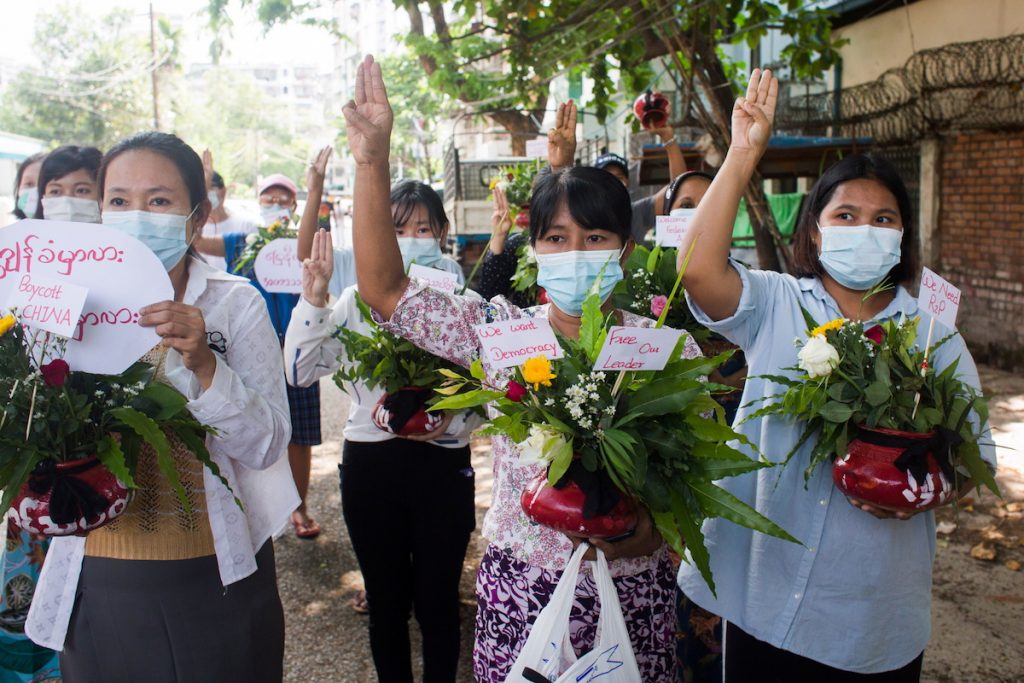The Association of Southeast Asian Nations (ASEAN) has been slated by a leading rights group for inviting Myanmar’s junta leader, Sr. Gen. Min Aung Hlaing, to attend its upcoming summit to discuss the crisis in Myanmar.
Min Aung Hlaing will attend the summit in Indonesia on April 24 for his first known foreign trip since he seized power on Feb. 1.
New York-headquarteredHuman Rights Watch said that ASEAN’s inclusion of Min Aung Hlaing lends unwarranted legitimacy to the junta’s State Administrative Council over Myanmar’s democratically elected government, which the military overthrew.
“Min Aung Hlaing, who faces international sanctions for his role in military atrocities and the brutal crackdown on pro-democracy protesters, should not be welcomed at an intergovernmental gathering to address a crisis he created,” said Brad Adams, HRW’s Asia director.
“ASEAN members should instead take this opportunity to impose targeted, economic sanctions on junta leaders and on businesses that fund the junta, and press the junta to release political detainees, end abuses, and restore the country’s democratically elected government,” Adams said.
Since the coup, Myanmar security forces have killed 728 people, according to a local activist group, in an attempt to crush protests.
HRW pointed out that Malaysia and Indonesia have publicly expressed concern about the coup, and Singapore and the Philippines have urged the Myanmar security forces to exercise restraint. However, the rights group said that ASEAN as a group has done little more than call on “all parties” to refrain from violence and to seek a peaceful solution through “constructive dialogue.”

Food insecurity
The rights group’s call comes as the United Nations warned on April 22 that food insecurity is rising sharply in Myanmar with millions of people expected to go hungry in coming months.
Up to 3.4 million more people will struggle to afford food in the next three to six months with urban areas worst affected as job losses mount in manufacturing, construction and services and food prices rise, a World Food Program analysis shows.
“More and more poor people have lost their jobs and are unable to afford food,” country director Stephen Anderson said in a statement.
“A concerted response is required now to alleviate immediate suffering, and to prevent an alarming deterioration in food security.”
Before the coup the coronavirus pandemic had already taken a heavy toll of the economy, which had been growing as it emerged from decades of isolation and financial mismanagement under former military governments.
Last week a top UN official warned that Myanmar risked falling into a conflict similar to the civil war that ravaged Syria. The coup has triggered clashes between the army and ethnic minority insurgent groups in the north and east.
Pope Francis — who visited Myanmar in 2017 — has made repeated statements calling for an end to the bloodshed in the country. The head of the Catholic Church in Myanmar Cardinal Charles Maung Bo and other overseas church leaders have equally voiced concerns calling for peace and reconciliation.
With Reuters






